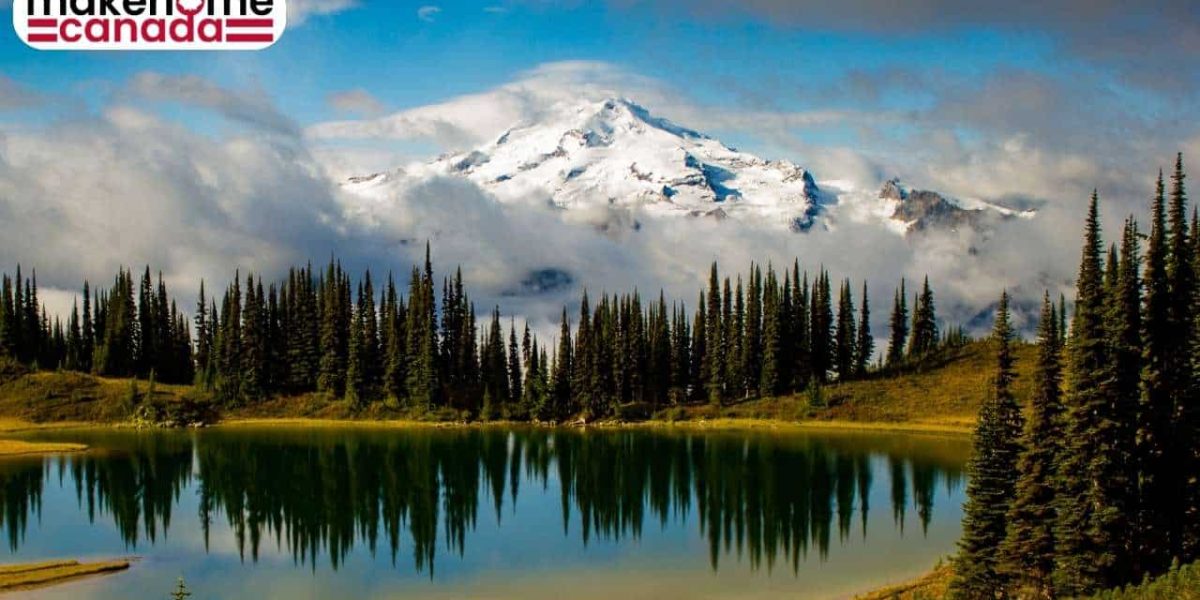Planning to Move to Canada? Dreaming of life in Canada? Whether you’re packing your bags for a study program, a new job, or your next adventure, there are certain common things newcomers often get wrong about Canada—especially if you only rely on travel brochures or stereotypes.
So, in the spirit of Canada Day, let’s clear up a few common misconceptions and share some practical truths every newcomer should know.
How Big Is Canada Really?
Most people know Canada is huge—but the reality of its size often only sinks in once you’re here.
Canadians love to remind newcomers that the country’s vastness means people often measure distance in hours, not kilometres or miles. Canada is the second-largest country in the world, covering more than 9.98 million square kilometres. That size creates some surprising geographical quirks: many major Canadian cities are actually closer to U.S. cities than they are to each other.
For instance, Toronto and Vancouver—two of Canada’s biggest urban hubs—are about a five-hour flight apart. So if you’re planning a whirlwind week-long trip, it’s wise to rethink plans that include stops in Halifax, Montreal, Toronto, Calgary, and Vancouver. You might spend more time in the air than on the ground.
Each Province Feels Like Its Own Place
Canada’s enormous size means it’s not just landscapes that change from coast to coast—the laws, services, and daily life can differ a lot too.
Each province has its own powers to make key decisions that affect everyday living, from taxes and healthcare to driving rules and even the legal drinking age. The differences go beyond rules: language, culture, and even job requirements shift from place to place.
In Quebec, for example, French is the dominant language at work—especially if you’re in a customer-facing role—while in Ontario, English is the norm and being bilingual is simply an advantage.
Many newcomers are surprised to learn there isn’t really one ‘Canadian way of life.’ Instead, your experience will depend a lot on where you choose to live.
The Weather: More Than Just Cold
Another one of the common things newcomers often get wrong about Canada is its weather.
Well, winters in Canada can be long and harsh, especially if you’re new to snow, icy sidewalks, or temperatures that dip well below freezing. Good boots, a warm jacket, and winter accessories are essentials, not optional.
However, what surprises many newcomers is just how hot summers can get. While you may have spent months bracing for the cold, don’t overlook summer packing—many parts of Canada routinely hit 25°C to 30°C, and during heatwaves, temperatures can jump over 35°C. Cities like Ottawa, Calgary, and Toronto can feel downright tropical in July and August.
So, you’ll need to prepare for two extremes: snowdrifts in January and heatwaves in July.
Politeness Doesn’t Always Equal Friendliness
Canada has a reputation for having some of the world’s most polite people. You’ll often hear plenty of ‘please,’ ‘thank you,’ and ‘sorry’—sometimes all in the same sentence.
But here’s what newcomers sometimes misunderstand: politeness isn’t quite the same as warmth.
While Canadians tend to be courteous and respectful, don’t assume that a polite nod or ‘excuse me’ means they’re offering lifelong friendship. Kindness and respect are big parts of everyday interactions, but it’s a bit different than how friendliness works in some other cultures.
The Many Meanings Of “Sorry”
Speaking of politeness—there may be no word more iconic in Canadian culture than ‘sorry’.
To an outsider, it might sound like Canadians are constantly apologizing, but that’s not quite what’s happening. ‘Sorry’ here can mean a lot of things: ‘excuse me’, ‘pardon me’, ‘I didn’t catch that’, or even ‘did you just say that out loud?’.
It’s a catch-all that’s more about acknowledging others politely than actually admitting fault.
Public Space Etiquette
Another one of the common things newcomers often get wrong about Canada is the public space etiquette.
Newcomers often find Canadian etiquette in public spaces surprisingly strict—especially compared to larger, busier cities elsewhere in the world.
Canadians tend to keep their voices low in public places and avoid causing a scene. Talking loudly on your phone, playing music without headphones, or pushing ahead in line are all considered poor form. Personal space matters too—Canadians value their bubble.
Other little courtesies include holding doors open for people behind you, saying ‘thank you’ when someone does the same, and avoiding prolonged eye contact with strangers. These small things help keep public spaces peaceful and comfortable for everyone.
Shoes Off Indoors
If you’re invited to a Canadian’s home, be ready to kick off your shoes at the door.
Many newcomers are caught off guard by this, but it makes sense given Canada’s climate. With snow, rain, mud, and salt-covered sidewalks, wearing outdoor shoes inside is a quick way to dirty floors and carpets. Even in dry summer months, it’s still a common courtesy to leave your shoes at the entrance.
Unless your host insists otherwise, assume you should remove your shoes when you come inside. It’s a simple sign of respect—and helps keep homes cleaner.
Watch Out For The Geese
Finally, a fun but important tip: Canada’s wildlife is part of its charm, but it’s not always friendly—especially when it comes to geese.
Canadian geese are everywhere, from city parks to suburban ponds. While they might look harmless, they’re notoriously territorial—especially during nesting season when they have goslings to protect. Many locals have stories of being hissed at, chased, or even nipped by a defensive goose.
So, enjoy Canada’s wildlife—but give the geese plenty of space. They were here first, and they have no problem reminding you of that!
Final Thoughts
From the true scale of the country’s size to the quirks of daily etiquette, life in Canada comes with some surprises. But knowing these small details can make your move smoother and your new life feel a bit more familiar—whether you’re settling in bustling Toronto, laid-back Vancouver, or cozy Halifax.
So pack your warmest parka and your lightest shorts, brush up on your polite ‘sorry’, and get ready to call Canada home.
Happy Canada Day—wherever you’re reading from!
MakeHomeCanada, a Canadian immigration leader, promises excellence and tailored pathways for your Canadian journey. Get in touch with us at [email protected].




